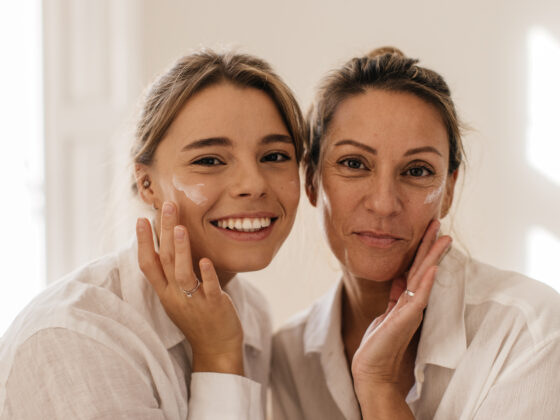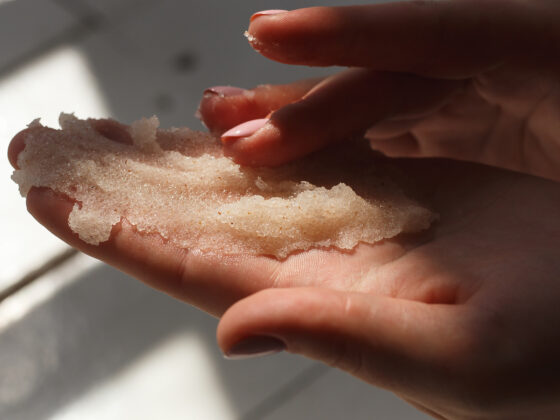The world of skincare can sometimes feel overwhelming, with an abundance of products each promising extraordinary results. Amid the cacophony, one product has emerged as a game-changer – the serum. But what exactly are skincare serums, and why are they so integral? Let’s explore.
What’s Inside This Article
Understanding Skincare Serums
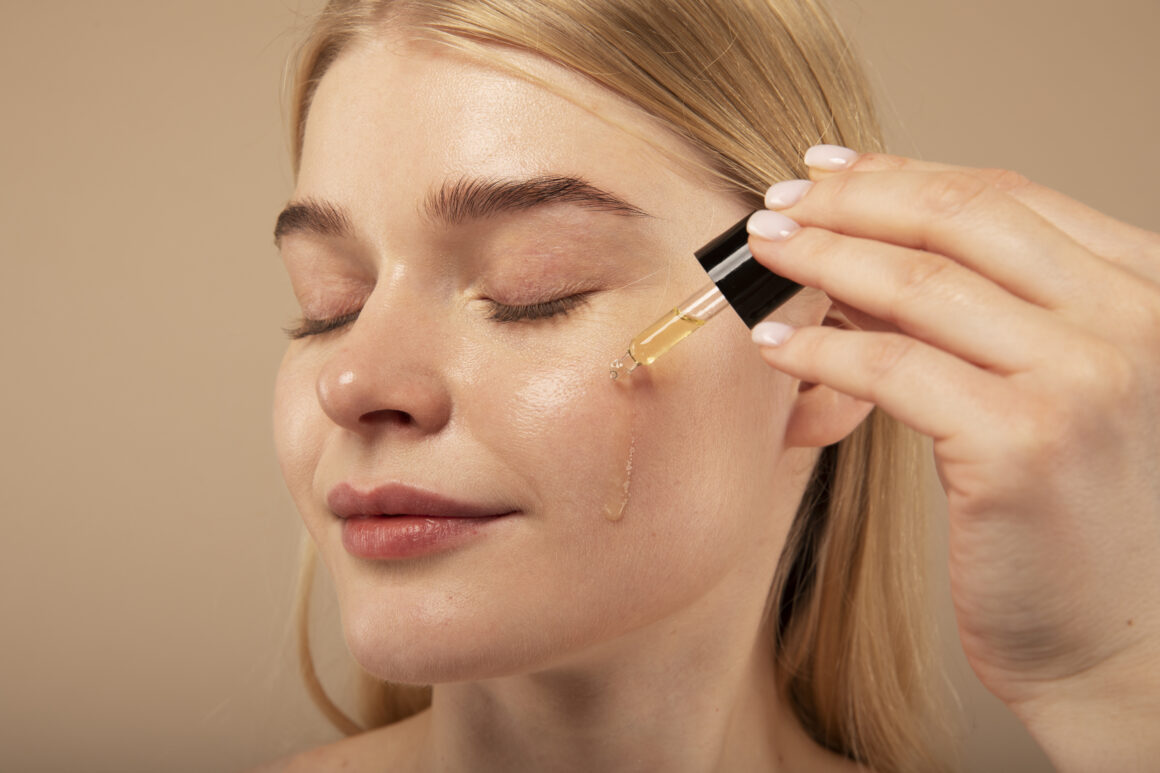
In the simplest terms, serums are lightweight, fast-absorbing liquids packed with a high concentration of skin-beneficial ingredients. Unlike heavier products like creams and lotions, serums consist of smaller molecules that penetrate more deeply into the skin, ensuring that their potent ingredients are delivered right where they’re most needed.
Serums should be applied after cleansing and toning but before you apply your moisturizer. This order of application allows serums to deliver targeted treatment to your skin. But what exactly are these treatments, and what can they do for you?
Decoding the Ingredients of Serums
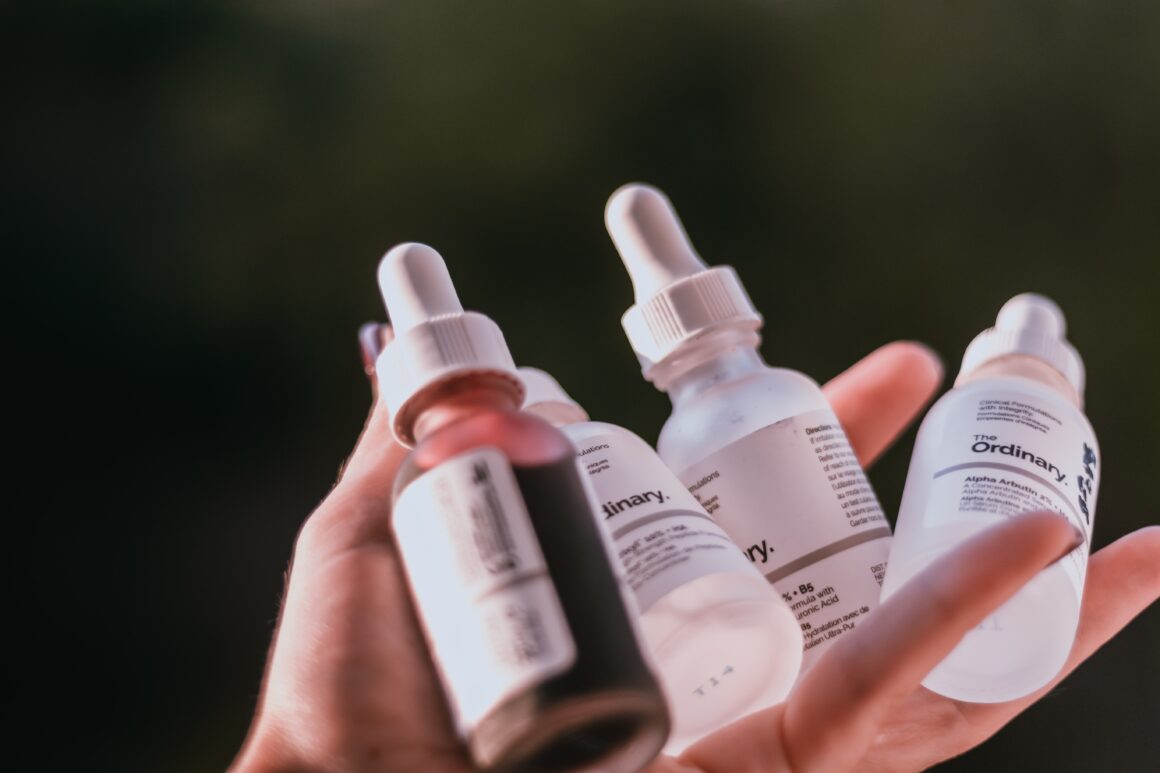
Different serums serve different purposes, largely due to the active ingredients they contain. Some serums are infused with hyaluronic acid, which draws moisture into the skin, making it an excellent choice for hydration. Others might contain retinol, a derivative of vitamin A, known for its anti-aging properties.
Vitamin C serums have antioxidant properties that help protect the skin from damaging free radicals and can brighten your complexion. Niacinamide, another popular serum ingredient, has a wide range of benefits, including reducing inflammation, minimizing pore appearance, and regulating oil production.
The Benefits of Using Skincare Serums
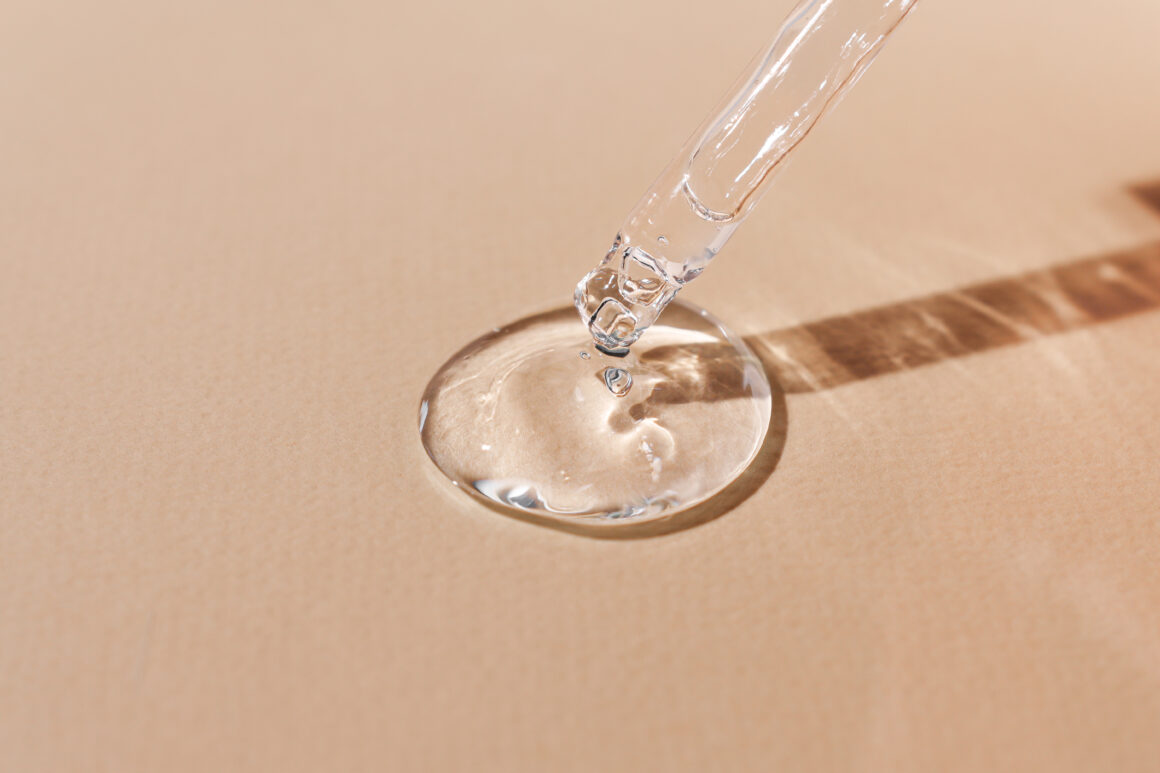
One of the primary reasons why serums matter in skincare routine is their ability to address specific skin concerns effectively. Their high concentration of active ingredients makes them particularly effective at their job, whether it’s reducing wrinkles, minimizing hyperpigmentation, or hydrating the skin.
For instance, if aging is a concern, using a serum with retinol can help stimulate the production of collagen, which can reduce the appearance of wrinkles and fine lines. On the other hand, a serum with vitamin C can help those suffering from dull skin by brightening the complexion and evening out skin tone.
Moreover, the lightweight consistency of serums allows for layering multiple products. This means you can use more than one serum to tackle various skin issues concurrently.
Incorporating Serums Into Your Skincare Routine
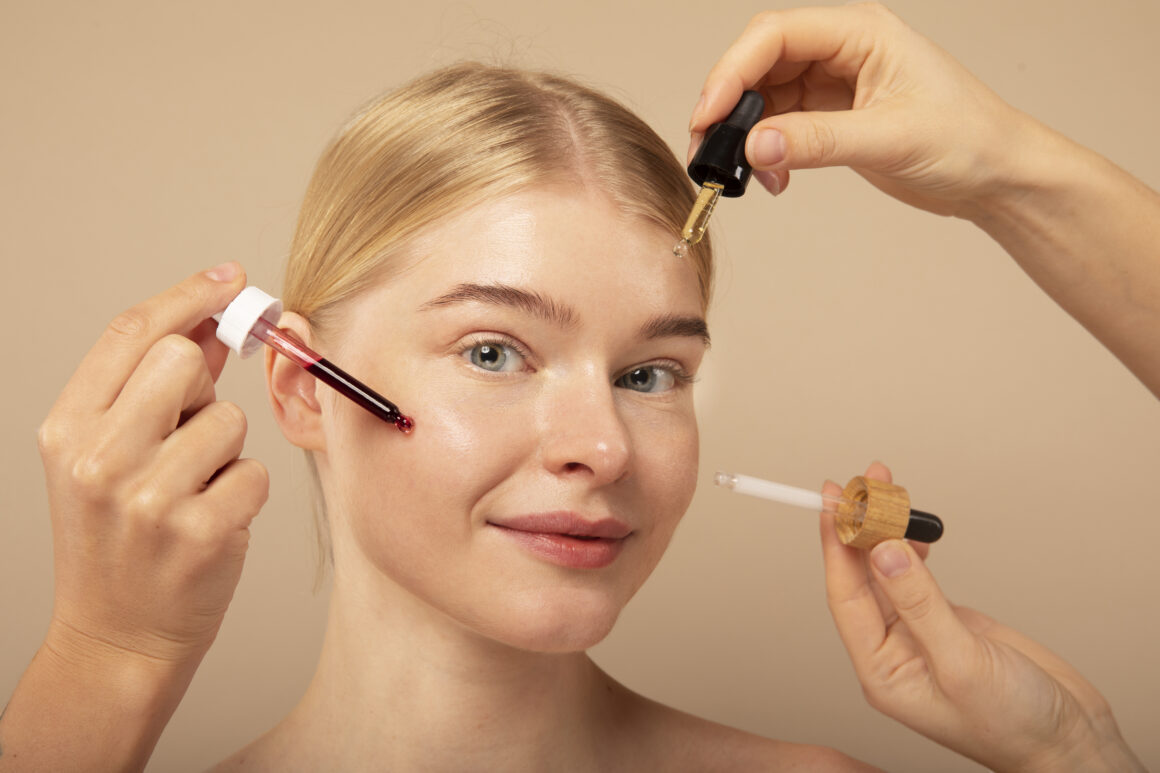
Incorporating serums into your skincare routine is simple. After thoroughly cleansing and toning your skin, apply your serum. Wait for a few minutes to allow it to absorb fully into the skin before following up with a moisturizer to lock in the serum and provide additional hydration.
Remember that consistency is key when it comes to skincare. Regular use of your chosen skincare serums can yield visible results over time.
Tips for Choosing the Right Skincare Serums
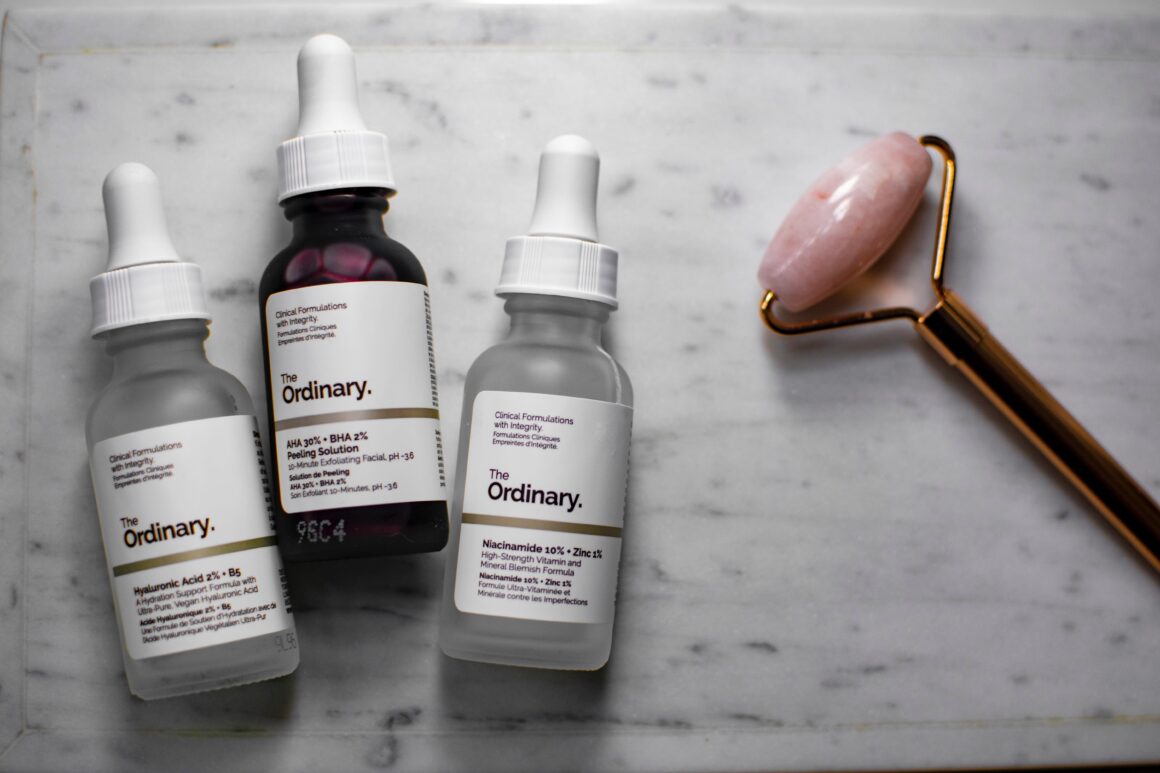
Choosing the right serum for your skin involves understanding your skin type and its needs. Those with dry skin might benefit from a serum rich in hyaluronic acid, while those with oily skin might find a niacinamide serum beneficial.
If you’re concerned about signs of aging, look for serums with ingredients like retinol and peptides. Those seeking a brighter complexion might opt for a vitamin C serum.
Precautions When Using Serums
While serums are generally safe to use, their high concentration of active ingredients can potentially irritate the skin, particularly if you have sensitive skin or if you’re using a serum for the first time. It’s recommended to do a patch test before incorporating a new serum into your skincare routine.
Also, some serums, like those containing retinol or acids, can make your skin more sensitive to the sun. If you’re using these kinds of serums, be sure to use sunscreen during the day to protect your skin.
How to Find the Best Serums for Your Skin Type
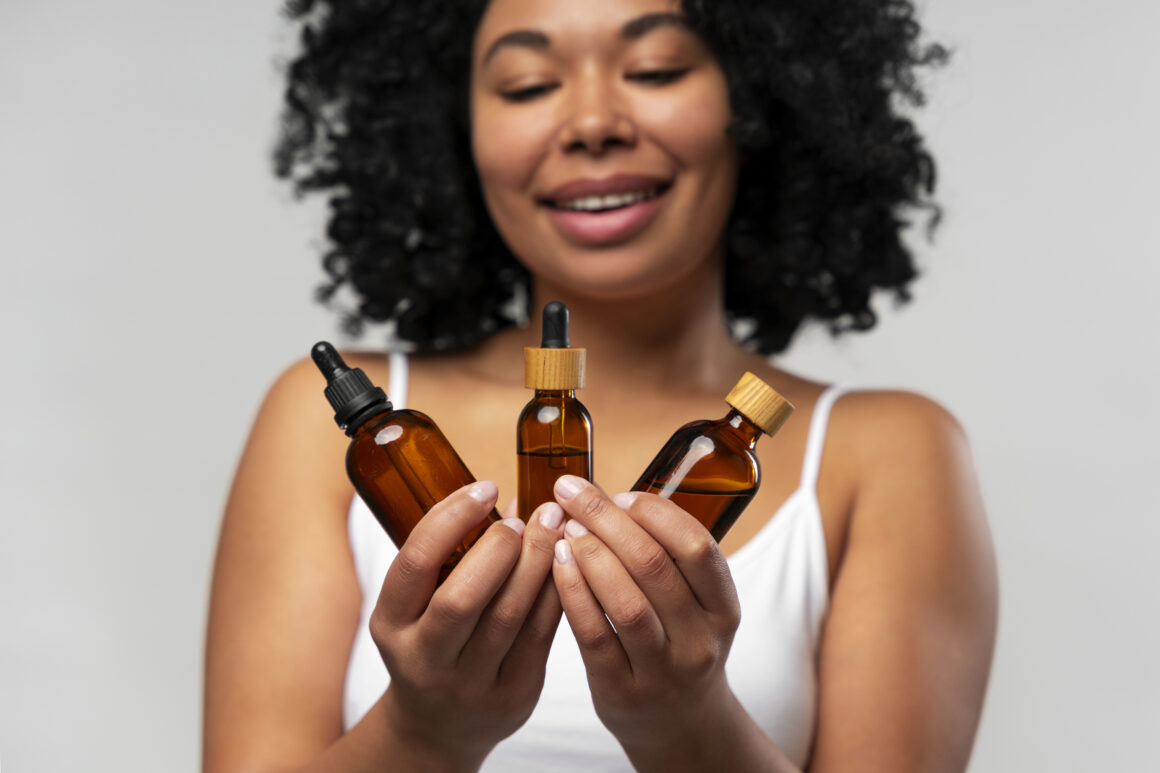
As we mentioned earlier, different serums can suit different skin types and conditions. But with so many options available on the market, how can you find the best one for you? Here are some tips and recommendations to help you narrow down your choices.
Best Serums for Dry Skin
Dry skin lacks moisture and can appear dull, flaky, and rough. To combat dryness, you need a serum that can hydrate and nourish your skin, as well as protect it from further moisture loss. Look for serums that contain ingredients like hyaluronic acid, glycerin, ceramides, and oils. These ingredients can help replenish your skin’s moisture levels and strengthen its barrier function.
Some of the best serums for dry skin are:
- The INKEY List Hyaluronic Acid Hydrating Serum: This serum contains hyaluronic acid, a powerful humectant that can hold up to 1,000 times its weight in water. It also contains peptides that can help smooth and plump your skin.
- First Aid Beauty Ultra Repair Hydrating Serum: This serum contains a blend of hyaluronic acid, colloidal oatmeal, aloe vera, and antioxidants that can hydrate, soothe, and protect your skin. It also has a gel texture that feels refreshing and lightweight on the skin.
- Bioderma Hydrabio Serum: This serum contains glycerin, niacinamide, xylitol, and apple seed extract that can moisturize, brighten, and improve your skin’s texture. It also has a patented complex called Aquagenium that can help boost your skin’s natural hydration process.
Best Serums for Oily Skin
Oily skin produces excess sebum that can cause shininess, greasiness, and clogged pores. To balance oily skin, you need a serum that can regulate oil production, prevent breakouts, and mattify your skin. Look for serums that contain ingredients like niacinamide, salicylic acid, zinc, and clay. These ingredients can help control oil, unclog pores, reduce inflammation, and absorb excess shine.
Some of the best serums for oily skin are:
- The Ordinary Niacinamide 10% + Zinc 1%: This serum contains niacinamide and zinc PCA that can help reduce sebum activity, minimize pore appearance, and improve skin clarity. It also has a water-based formula that feels light and non-greasy on the skin.
- Caudalie Vinopure Natural Salicylic Acid Pore Minimizing Serum: This serum contains natural salicylic acid derived from wintergreen that can exfoliate and clear your pores. It also contains grape seed polyphenols that can protect your skin from oxidative stress and rosewater that can hydrate and soothe your skin.
- SkinCeuticals Retexturing Activator: This serum contains hydroxyethyl urea/aminosulfonic acid compound that can resurface and replenish your skin. It also contains hyaluronic acid and kombucha that can hydrate and smooth your skin. It has a dual-action formula that can exfoliate without drying out your skin.
Best Serums for Combination Skin
Combination skin has both dry and oily areas, usually with an oily T-zone (forehead, nose, and chin) and dry cheeks. To balance combination skin, you need a serum that can hydrate the dry areas without making the oily areas more greasy. Look for serums that contain ingredients like hyaluronic acid, green tea extract, omega fatty acids, and squalane. These ingredients can help moisturize, calm, nourish, and restore your skin.
Some of the best serums for combination skin are:
- Glow Recipe Avocado Ceramide Redness Relief Serum: This serum contains avocado butter and ceramides that can hydrate and repair your skin barrier. It also contains rice milk and allantoin that can soothe and calm your skin. It has a creamy texture that feels comfortable on the skin without being too heavy or sticky.
- Tata Harper Resurfacing AHA + BHA Serum: This serum contains natural alpha-hydroxy acids (AHAs) derived from sugar maple extract that can exfoliate and brighten your skin. It also contains beta-hydroxy acids (BHAs) derived from willow bark extract that can unclog pores and reduce oiliness. It has a gel-like texture that feels refreshing and cooling on the skin.
- Paula’s Choice Omega+ Complex Serum: This serum contains omega fatty acids derived from flaxseed, chia seed, and passion fruit oils that can nourish and strengthen your skin. It also contains ceramides and antioxidants that can hydrate and protect your skin. It has a milky texture that feels silky and smooth on the skin.
Best Serums for Sensitive Skin
Sensitive skin is prone to irritation, redness, and inflammation. To soothe sensitive skin, you need a serum that can calm and heal your skin, as well as protect it from environmental triggers. Look for serums that contain ingredients like oatmeal, aloe vera, chamomile, and centella asiatica. These ingredients can help reduce inflammation, hydrate, and repair your skin.
Some of the best serums for sensitive skin are:
- Mad Hippie Vitamin A Serum: This serum contains a gentle form of vitamin A called hydroxypinacolone retinoate that can improve the signs of aging without irritating your skin. It also contains oat beta glucan, aloe vera, and hyaluronic acid that can moisturize and soothe your skin. It has a lightweight texture that feels comfortable on the skin.
- Krave Beauty Great Barrier Relief: This serum contains tamanu oil, safflower oil, and rosehip oil that can nourish and heal your skin. It also contains niacinamide, ceramides, and squalane that can restore your skin barrier and prevent moisture loss. It has a creamy texture that feels rich and luxurious on the skin.
- Dermalogica Ultracalming Serum Concentrate: This serum contains oat kernel extract, cucumber extract, and ginger extract that can calm and cool your skin. It also contains sunflower seed oil, evening primrose oil, and avocado oil that can hydrate and replenish your skin. It has a gel-like texture that feels refreshing and soothing on the skin.
Best Serums for Aging Skin
Aging skin shows signs of wrinkles, sagging, dullness, and uneven tone. To combat aging, you need a serum that can stimulate collagen production, protect from oxidative stress, and brighten your complexion. Look for serums that contain ingredients like vitamin C, retinol, peptides, and antioxidants. These ingredients can help smooth, firm, and rejuvenate your skin.
Some of the best serums for aging skin are:
- SkinCeuticals C E Ferulic Combination Antioxidant Treatment: This serum contains vitamin C, vitamin E, and ferulic acid that can protect your skin from free radical damage and environmental aggressors. It also helps improve the appearance of fine lines, wrinkles, and discoloration. It has a watery texture that absorbs quickly into the skin.
- Sunday Riley Good Genes All-In-One Lactic Acid Treatment: This serum contains lactic acid, a gentle AHA that can exfoliate and brighten your skin. It also contains licorice extract, lemongrass extract, and prickly pear extract that can soothe and hydrate your skin. It has a creamy texture that feels smooth and nourishing on the skin.
- The INKEY List Retinol Anti-Aging Serum: This serum contains retinol, a powerful form of vitamin A that can stimulate collagen production and cell renewal. It also contains squalane and hyaluronic acid that can moisturize and plump your skin. It has a lightweight texture that feels non-greasy on the skin.
Best Serums for Brightening Skin
Dull skin lacks radiance and glow. To brighten dull skin, you need a serum that can exfoliate the dead skin cells, inhibit melanin production, and enhance your natural luminosity. Look for serums that contain ingredients like vitamin C, niacinamide, alpha-arbutin, and licorice extract. These ingredients can help even out your skin tone, fade dark spots, and boost your skin’s glow.
Some of the best serums for brightening skin are:
- Peach & Lily Purifying White Waterful Serum: This serum contains niacinamide, glutathione, hyaluronic acid, and lotus extract that can hydrate, brighten, and purify your skin. It also helps reduce the appearance of pores and blemishes. It has a water-like texture that feels refreshing and hydrating on the skin.
- Caudalie Vinoperfect Radiance Serum: This serum contains viniferine derived from grapevine sap that can inhibit melanin production and reduce dark spots. It also contains olive squalane that can moisturize and soften your skin. It has a milky texture that feels silky and smooth on the skin.
- Biossance Squalane + 10% Lactic Acid Resurfacing Night Serum: This serum contains lactic acid derived from sugar cane that can exfoliate and brighten your skin overnight. It also contains squalane and clover extract that can hydrate and firm your skin. It has a gel-like texture that feels gentle and soothing on the skin.
How to Layer Serums for Optimal Results?
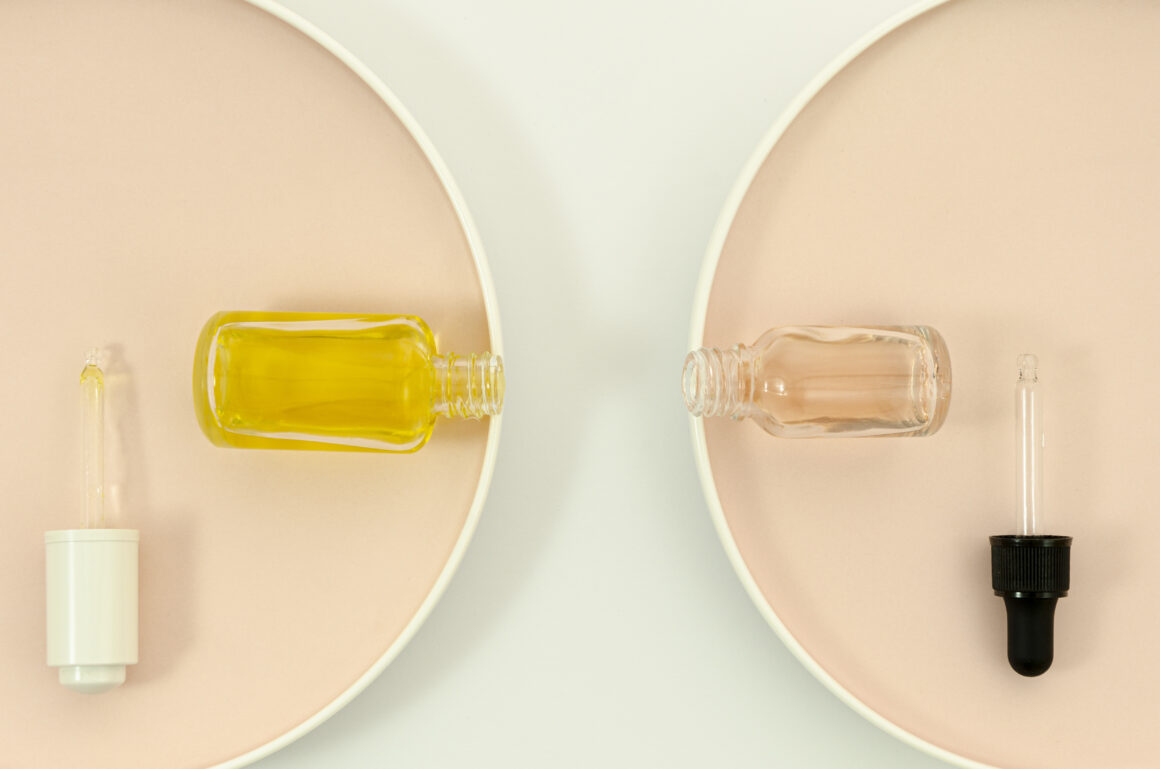
As we mentioned earlier, one of the advantages of using serums is that you can layer them to address multiple skin concerns at once. However, layering serums requires some knowledge and caution, as not all serums are compatible with each other. Here are some tips and guidelines on how to layer serums for optimal results.
- Start with the thinnest consistency and work your way up to the thickest. This will ensure that the lighter serums can penetrate your skin without being blocked by the heavier ones.
- Wait for each serum to absorb fully before applying the next one. This will prevent pilling and allow each serum to work effectively.
- Use water-based serums before oil-based ones. Water and oil don’t mix well, so applying an oil-based serum first can prevent a water-based one from reaching your skin.
- Avoid mixing serums that contain conflicting ingredients. Some ingredients can cancel out or irritate each other when mixed. For example, vitamin C and niacinamide can cause flushing and redness when used together. Retinol and acids can cause excessive dryness and peeling when used together.
- Use less potent serums in the morning and more potent ones at night. Some ingredients, like vitamin C and antioxidants, can help protect your skin from sun damage and pollution during the day. Others, like retinol and acids, can make your skin more sensitive to the sun and are best used at night when your skin is in repair mode.
Some examples of serum combinations that work well together
- Hyaluronic acid + vitamin C: This combination can hydrate and brighten your skin, as well as boost collagen production and protect from free radicals.
- Niacinamide + salicylic acid: This combination can regulate oil production, unclog pores, reduce inflammation, and improve skin clarity.
- Retinol + peptides: This combination can stimulate collagen production, smooth wrinkles, firm sagging skin, and enhance skin elasticity.
Some examples of serum combinations that should not be mixed
Not all serums are compatible with each other, and some combinations can cause irritation, inactivation, or staining. Here are some examples of serum combinations that will not work well together and should avoid mixing:
- Retinoid or retinol and alpha hydroxy acid (AHA): Both ingredients exfoliate the skin and increase its sensitivity to the sun, so using them together can cause excessive dryness, peeling, and sunburn. It’s better to use them on alternate nights or use retinol at night and AHA in the morning.
- Retinoid or retinol and benzoyl peroxide: Both ingredients are effective for treating acne, but they can also deactivate each other and reduce their efficacy. Benzoyl peroxide can also oxidize retinol and make it less potent. It’s better to use them separately or apply benzoyl peroxide as a spot treatment only.
- Retinoid or retinol and vitamin C: Both ingredients are antioxidants that can brighten the skin and reduce signs of aging, but they have different pH levels and stability issues. Vitamin C is acidic and can lower the pH of retinol, making it more irritating and less effective. It’s better to use them at different times of the day or look for a stabilized formula that combines both ingredients.
- Soap-based cleanser and vitamin C: Vitamin C is very pH-sensitive and can lose its potency when exposed to alkaline substances, such as soap. Soap-based cleansers can also strip the skin of its natural oils and moisture, making it more prone to irritation from vitamin C. It’s better to use a gentle, pH-balanced cleanser before applying vitamin C serum.
The Bottom Line
Understanding the role of serums in skincare is essential to curate an effective skincare routine. Whether you’re looking to address aging, dryness, dullness, or other skin concerns, there’s a serum out there that can help. With consistent use, serums can deliver significant improvements, transforming your skin’s health and appearance.
Keep exploring our blog for more skincare insights and advice, and remember – your skin is unique, and so should be your skincare routine.









